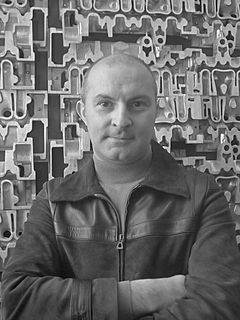A Quote by Richard Livingstone
There are few greater treasures to be acquired in youth than great poetry-and prose-stored in the memory. At the time one may resent the labor of storing. But they sleep in the memory and awake in later years, illuminated by life and illuminating it.
Related Quotes
Certainly for me prose has a dilatory capacity, insofar as I don't trust my abilities in prose. I imagine I could have done the same thing in poetry, but sometimes I feel more fluent in poetry than in prose, and as a consequence perhaps I might pass too quickly by a thing that I might, in prose, have struggled merely to articulate. That struggle creates space, and it seems to me a particular kind of space into which memory flows easily. I suspect I think better in poetry, however.
But pain may be a gift to us. Remember, after all, that pain is one of the ways we register in memory the things that vanish, that are taken away. We fix them in our minds forever by yearning, by pain, by crying out. Pain, the pain that seems unbearable at the time, is memory's first imprinting step, the cornerstone of the temple we erect inside us in memory of the dead. Pain is part of memory, and memory is a God-given gift.
to look back on one's life is to experience the capriciousness of memory. ... the past is not static. It can be relived only in memory, and memory is a device for forgetting as well as remembering. It, too, is not immutable. It rediscovers, reinvents, reorganizes. Like a passage of prose it can be revised and repunctuated. To that extent, every autobiography is a work of fiction and every work of fiction an autobiography.
It is curious how sometimes the memory of death lives on for so much longer than the memory of the life that it purloined. Over the years, as the memory of Sophie Mol ... slowly faded, the Loss of Sophie Mol grew robust and alive. It was always there. Like a fruit in season. Every season. As permanent as a government job.
Time doesn't exist. It doesn't exist in any way. It's more subjective than real. Time doesn't exist. I believe in memory. Memory is the real inspiration. Memory creates time. Memory is pure power. Pure power and pure strength, and pure utilization of space and time (if time is something we can really ever label). But I don't believe in time itself.
Poetry has an indirect way of hinting at things. Poetry is feminine. Prose is masculine. Prose, the very structure of it, is logical; poetry is basically illogical. Prose has to be clear-cut; poetry has to be vague - that's its beauty, its quality. Prose simply says what it says; poetry says many things. Prose is needed in the day-to-day world, in the marketplace. But whenever something of the heart has to be said, prose is always found inadequate - one has to fall back to poetry.
What is memory but the repository of things doomed to be forgotten, so you must have History. You must have labor to invent History. Being faithful to all that happens to you of significance, recording days, dates, events, names, sights not relying merely upon memory which fades like a Polaroid print where you see the memory fading before your eyes like time itself retreating.
The millions are awake enough for physical labor; but only one in a million is awake enough for effective intellectual exertion, only one in a hundred million to a poetic or divine life. To be awake is to be alive. I have never yet met a man who was quite awake. How could I have looked him in the face? We must learn to reawaken and keep ourselves awake, not by mechanical aids, but by an infinite expectation of the dawn, which does not forsake us in our soundest sleep. I know of no more encouraging fact than the unquestionable ability of man to elevate his life by conscious endeavor.
Of my fifty-seven years I have applied at least thirty to forgetting most of what I have learned or read. Since then, I have acquired a certain ease and cheer which I should never again like to be without. (...) I have stored little in my memory, but I can apply that little, and it is of use in many and varied emergencies. I keep it in order, but resist every attempt to increase its dead weight.

































